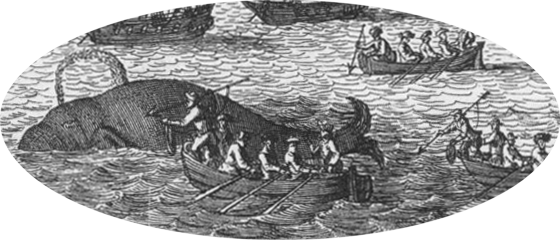
True peace is not merely the absence of tension: it is the presence of justice.
Martin Luther King (1957-1968)
response during the Montgomery Bus Boycott, 1955
Japan Resumes Commercial Whaling
This is a short clip from BBC Newsday about Japan's decision to leave the International Whaling Commission and resume the hunting of whales.
Transcript:
Japan is about to start hunting whales for profit despite international criticism. Erh, it's last commercial hunting was back in 1986 but the country never really stopped hunting. Erh, it continued carrying out what it called research missions where hundreds of whales were captured but the country has now withdrawn itself from the International Whaling Commission and it's first whaling fleet is set to take off today. David Campanelli has more:
Japanese whaling ships at work. Once a target is identified, an explosive harpoon is fired that penetrates deep into the whale killing the animal either on impact or in the subsequent struggle. Spring loaded claws are released and imbed themselves deep into the whale's body. There's no escape. Ships like this one are said by the Japanese authorities to be carrying out commercial research. But critics say this was just a cover so Japan could hunt whales for food - as the meat from the whales killed for research usually did end up for sale. One restaurant in Tokyo has a long history of serving up such dishes as whale sashimi and steaks.
"Whale is a healthy food with high protein and low calories."
Japan's decision comes into effect on July the First when a flotilla of ships is expected to set sale. Their hunt, however, will be confined to Japanese territorial waters and the country's exclusive economic zone.
"Save the whale!"
"When do we want it?"
"Now!"
But even so, Japan has faced a firestorm of criticism from anti-whaling countries and these environmentalists in London say interest in eating the animal is falling.
"I don't understand why Japan is doing this. I think there is no major domestic market for whale meat."
Like other whaling nations, Norway and Iceland, Japan argues hunting and eating whales are part of its culture. They say no whale species are threatened, but opposition isn't just about sustainability but the inhumanity of killing such majestic mammals. David Campanelli, BBC News.
The Pack
The pack contains the video in HD format together with a PDF featuring a crossword, the transcript, the transcript with gaps, a word list and a list of definitions. How to use the pack largely depends upon individual classes. Does a class need to go through any of the vocabulary first or will they be able to work out the meaning from the context?
I think there are two approaches to introducing the topic. One is to get the students to talk about unusual food they have eaten or food that they rarely have. Students could be asked where they draw the line on what they will eat. Are any vegetarians and if not is there any food they would refuse: beef, dog, lion, gorilla, insect, shark, dolphin, whale?
The other approach is to ask for a definition of culture and then ask students if there any any aspects of their own culture that are in decline or have ceased to be practised. What aspects of culture are fixed and what change?
After an opening discussion show the video and then see if any opinions have changed.
Notes
In the opening the TV presenter refers to hundreds of whales being "captured". This is clearly a euphemism. Killed is more accurate. One possibility before showing the video is to introduce the term euphemism. and then challenge the students to see if they can find one in the video.
A CNN report broadcast on the same day suggested that some environmentalists welcomed the change to commercial whaling! The idea being is that if whaling were truly commercial and government subsidies were phased out (estimated to run to $10 million a year) it would collapse and disappear altogether. For more background see this April 2019 article at the Washington Post.
My own thought about using culture as a defence for controversial actions is to test the argument with extreme examples. Bearing arms is enshrined in the US Constitution, so why aren't those arms limited to the firearms of the day, say, long rifles and muskets? Whale hunting is cultural so why not do it using hand held spears and harpoons from wooden fishing boats rowed by hand?

Rather than using the worksheets all in one go it's best to space their use out over several weeks with gaps in between. This way the vocabulary is more likely to stick in the memory.
getfile: Japan Resumes Commercial Whaling
ZIP: Video and PDF, 104 mb- Top Page
- Splog!
- Articles
- Games
- Across The Table
- Add One More
- Anaconda
- Be A Monster!
- Black Hole (board game)
- Bombs Away!
- Catch!
- Catch-Caught-Caught!
- Centipede
- Charades
- Co-operative Quiz
- Crocodile
- Dice Stack
- Fast Food Tag
- Find My Number
- Find The Penny
- Football
- The Happy Game
- Line Up!
- Maze Challenge
- Natty Narration
- Nose Nose Nose
- One Step Forward!
- Pair Fluency Match 7 - Death Wish
- Pair Fluency Match 7 - Go Green!
- Parrot Parade
- Passport Control
- Reach The Top!
- Snake
- SockIt!
- Tickle Time
- What Cards
- Which One?
- Whose Shoe?
- World Cup Football 2018
- You, You, Me!
- Wake Up
- Packs
- Sheets
- Songs and Music
- Strips (songs and otherwise)
- Stories
- Techniques
- Video
- Environment
- Japan
- The 75th Anniversay of the bombing of Hiroshima
- The 75th Anniversay of the bombing of Nagasaki
- Cars in Japan
- Coronavirus Olympics
- Forest Bathing
- Japan and the Summit
- Japan and World War Two
- Multiculural Japan?
- Olympics Two Tokyos
- Plastic in Japan
- Return to Fukushima
- The Anniversary too Important to Cancel
- Typhoon Jebi
- Yayoi Kusama's Infinity
- Other
- This Week In History
- January, February, March
- April, May, June
- Sub Menu Item
- This Week in History: April 8-10
- This Week in History: April 12-15
- This Week in History: April 19-24
- This Week in History: April 24-26
- This Week in History: May 6-11
- This Week in History: May 11-14
- This Week in History: May 18-23
- This Week in History: May 25-31
- This Week in History: June 1-5
- This Week in History: June 11-14
- This Week in History: June 22-27
- This Week in History: June 15-21
- This Week in History: June 29 - July 5
- July, August, September
- This Week in History: July 6-12
- Sub Menu Item
- This Week in History: July 14-19
- This Week in History: July 27-31
- This Week in History: August 2- 6
- This Week in History: August 17-21
- This Week in History: August 27-30
- This Week in History: August 31 - September 6th
- This Week in History: September 7-13
- This Week in History: September 22-27
- This Week in History: September 14-20
- This Week in History: September 28 - October 4
- October, November, December
- Quizes
- Vocab



